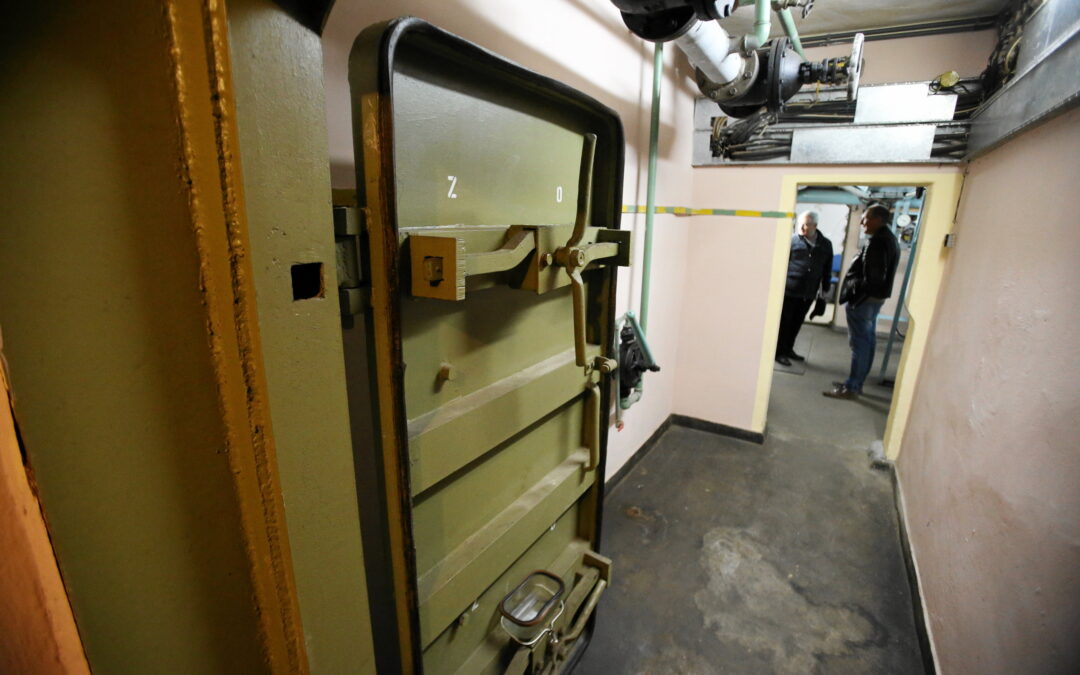Poland’s government has ordered firefighters to check if the country’s bomb shelters are fit for purpose in case “the darkest scenario” emerges from Russia’s war in neighbouring Ukraine.
Announcing the plan, deputy interior minister Maciej Wąsik assured Poles that there is no imminent threat. He also noted that the decision to check shelters had been made before Russia yesterday rained missiles on cities across Ukraine in the biggest air strikes since the start of the war.
Concerns have previously been raised over the quantity and quality of bomb shelters in Poland. The interior ministry admitted earlier this year that there are only enough such facilities for 3% of the population, though it added that other sites, such as car parks and basements, could be used as shelters.
“Firefighters are checking the condition [of shelters], whether they are equipped, whether they are fit for use,” Wąsik told broadcast Polsat this week. “If not, we will take steps to adapt them.”
“We’re preparing for the darkest scenarios,” he added. “We are obliged to do so. We are prepared for them, although the likelihood of that happening is small.”
Wąsik said that Poland – which has been among the leading international supporters of Ukraine and one of Russia’s fiercest critics – was not in danger. “We are in NATO, we are part of the European Union. We are not participants in this war, although we strongly support Ukraine. But Poland is a safe country.”
Hundreds of people protested in front of the Russian embassy in Warsaw following yesterday's missile attacks on Ukraine.
Participants held placards declaring that “Russia is a terrorist state” and chanted “Down with fascism!” and “Glory to Ukraine” https://t.co/CmkFJeMkmr
— Notes from Poland 🇵🇱 (@notesfrompoland) October 11, 2022
The checks of shelters will last two months, and Wąsik also revealed that Poland was watching how Ukraine sets up its civil defence procedures and “drawing certain conclusions”
Poland has taken a number of steps to ensure its security in response to Russia’s aggression against Ukraine.
In recent weeks, authorities have been working to establish supplies of potassium iodide tablets and distribution points for them amid concerns about the safety of nuclear facilities in Ukraine and fears that Russia could resort to using tactical nuclear weapons. Potassium iodide helps prevent the absorption of radioactive iodine.
In March, Poland moved to boost defence spending to 3% of GDP – one of the highest levels in NATO – and to more than double the number of troops in its armed forces. It aims to further increase its military budget to 5% of GDP.
Amid the military spending spree, the country’s defence minister, Mariusz Błaszczak, declared in July that Poland would have “the most powerful land forces in Europe”.
In response to yesterday’s missile strikes on Ukraine, hundreds of people protested in front of the Russian embassy in Warsaw. Poland’s prime minister, Mateusz Morawiecki, said the attacks confirmed that Russia “is a terrorist state”.
Main image credit: Cezary Aszkielowicz / Agencja Wyborcza.pl

Peter Kononczuk is senior editor at Notes from Poland. He was previously a journalist for Agence France-Presse (AFP) in London and Warsaw.




















